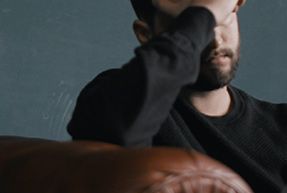Adam first discovered masturbation when he was in his preteen years and felt good whilst doing it. Whenever he was alone he found himself gratifying himself sexually. There were a few times when his mother accidentally caught him and that was embarrassing, but soon enough he learned when and where he could masturbate without getting caught.
As Adam grew into a young man, he found himself needing to masturbate more and more. He was worried that he had become addicted to his own body, but reasoned that if he wasn’t hurting anyone then his behaviour was harmless. At every chance he had to stroke himself, he did. Unfortunately, this also meant that he sometimes would do it in the car or in places that weren’t quite appropriate and once he was caught and arrested for public indecency. After being arrested a second time, the court ordered that he receive counselling for his problem. (This article is electronically protected – Copyright © Associated Counsellors & Psychologists Sydney PTY LTD)
Adam was surprised when he met his counsellor. He was expecting someone who would be moralistic and exhibit outrage at his behaviour. Instead, George was understanding, compassionate and willing to listen. George explained that their sessions would be confidential and that Adam could talk about whatever he needed to in order to help him understand his behaviour and how to control it. George didn’t interrupt Adam very often, except to ask for more information. After a few weeks of meeting, Adam began to realise that his masturbation addiction was shutting him off from relationships that might be satisfying and rewarding. Until that point he hadn’t considered his addiction as adversely affecting his life.
Within a few months, not only had Adam met his court requirements for counselling, but he was feeling better about his ability to control his urges. Although he still struggled from time to time, he continued to enlist George’s help by making regular visits and appointments to touch base on his progress and journey toward recovery. (This article is electronically protected – Copyright © Associated Counsellors & Psychologists Sydney PTY LTD)










































